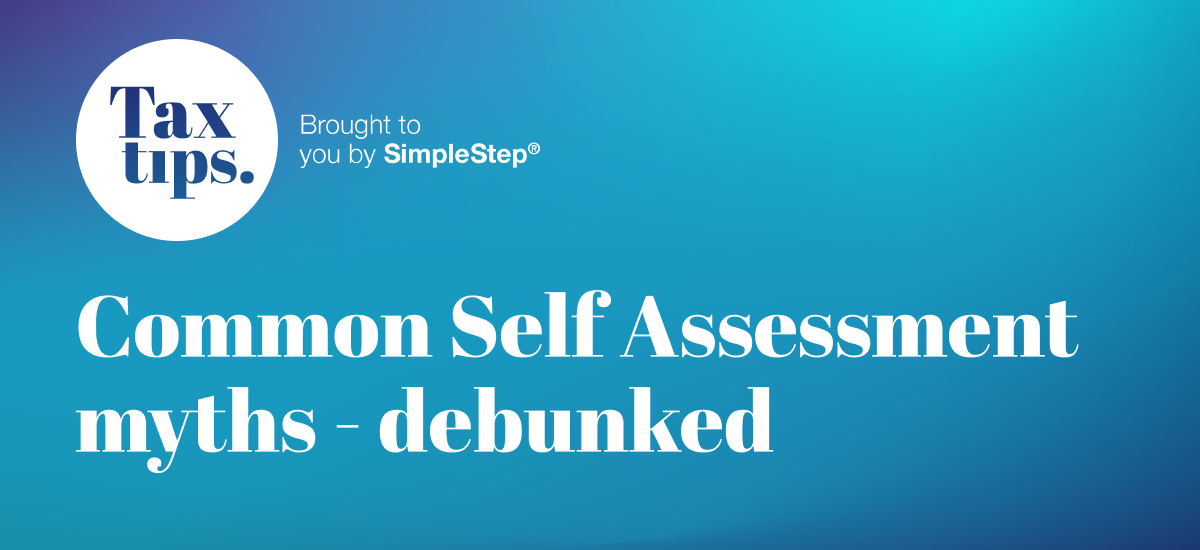TaxCalc Blog
News and events from TaxCalc
Debunking common myths surrounding Self Assessment tax returns

Filing a self-assessment tax return is a task that many dread, often because of the myths and misconceptions surrounding the process. These myths can lead to unnecessary stress, missed deadlines, and even financial penalties.
To help clear up some of the confusion, let’s debunk some of the most common myths about self-assessment tax returns.
Myth 1: Only self-employed people need to file a self-assessment tax return
One of the most prevalent myths is that only self-employed individuals need to file a self-assessment tax return. While it’s true that self-employed people are required to file, many others also need to complete a return, depending on their circumstances.
The reality:
You need to file a self-assessment tax return if you:
- Earn more than £1,000 from self-employment.
- Receive income from property rental.
- Have untaxed income, such as tips or commissions.
- Earn more than £100,000 in a year.
- Receive child benefit and your income (or your partner’s) exceeds £50,000.
- Have significant savings or investment income.
If any of these apply to you, regardless of your employment status, you may need to file a tax return.
Myth 2: You don’t need to keep records for your tax return
Some believe that if you’re filing online, there’s no need to keep detailed records because the system will automatically calculate everything for you. This is a dangerous misconception.
The reality:
HMRC requires you to keep detailed records of all income, expenses, and other relevant documents for at least six years. This includes:
- Receipts and invoices.
- Bank statements.
- Details of any income or capital gains.
- Records of any reliefs claimed.
Accurate records ensure that your tax return is correct and can protect you if HMRC ever opens an enquiry into your return.
Myth 3: HMRC will correct any mistakes you make
Some taxpayers believe that if they make a mistake on their tax return, HMRC will automatically correct it. While HMRC might flag obvious errors, it’s not their responsibility to ensure your return is accurate.
The reality:
You are responsible for the accuracy of your tax return. HMRC may correct minor errors, but if they don’t spot a mistake, you could still face penalties if the mistake leads to underpayment of tax. It’s crucial to double-check all entries before submitting your return and consider seeking professional advice if you’re unsure.
Myth 4: If I miss the deadline, I won’t be fined if I don’t owe any tax
A common belief is that if you miss the filing deadline but don’t owe any tax, you won’t be fined. This is incorrect and can lead to unnecessary penalties.
The reality:
HMRC imposes a £100 penalty for missing the filing deadline, regardless of whether you owe any tax. Additional penalties are applied the longer you delay filing. Even if you have no tax liability, it’s essential to file on time to avoid fines.
Myth 5: Filing early means I have to pay my tax bill sooner
Many people think that if they file their self-assessment tax return early, they’ll have to pay their tax bill earlier too. This isn’t true, and it’s a myth that discourages people from filing ahead of the deadline.
The reality:
Filing your tax return early does not change the payment deadline. You can file your return as early as April after the tax year ends, but the payment deadline remains January 31st. Filing early gives you more time to plan and save for your tax bill.
Myth 6: You don’t need to file a return if you’ve already paid tax through PAYE
If you’re employed and pay tax through PAYE (Pay As You Earn), you might think there’s no need to file a self-assessment tax return. While PAYE covers most people, there are exceptions.
The reality:
If you have additional income, such as rental income, dividends, or income from a side business, you may still need to file a self-assessment tax return, even if you’re already paying tax through PAYE. Ensure you’re meeting all your tax obligations by considering all sources of income.
Myth 7: HMRC is always harsh on honest mistakes
Some taxpayers worry that if they make an honest mistake on their tax return, HMRC will impose heavy penalties. This fear can cause unnecessary anxiety.
The reality:
While HMRC does impose penalties for mistakes, they consider the circumstances. If you make an honest mistake and take steps to correct it promptly, HMRC is likely to be more lenient. They focus on intentional evasion rather than penalising genuine errors. It’s important to correct any mistakes as soon as you spot them.
Myth 8: You can claim anything as a business expense
There’s a misconception that self-employed individuals can claim almost anything as a business expense, reducing their tax bill significantly.
The reality:
HMRC has strict rules about what constitutes an allowable expense. Expenses must be “wholly and exclusively” for business purposes to be deductible. Personal expenses, even if loosely related to your business, are not deductible. Claiming inappropriate expenses can lead to penalties and investigations.
Myth 9: Cash isn’t taxable
Some people believe that all businesses who are paid in cash do not need to declare that income on their tax return.
The reality:
Cash is a perfectly acceptable means of payment but it does not mean you can exclude that income from your tax return. Deliberately underreporting income is tax evasion, which is illegal and can lead to severe penalties, including fines and prosecution. It’s always better to report your income accurately. If you’re unsure about something, seek professional advice rather than risking non-compliance.
Myth 10: Once filed, you can’t amend your tax return
Many believe that once they’ve submitted their tax return, they can’t make any changes, which leads to stress about getting everything perfect the first time.
The reality:
You can amend your self-assessment tax return within 12 months of the filing deadline. This allows you to correct any mistakes or omissions without facing penalties, as long as the amendment is made within this period.
Conclusion
Self-assessment tax returns are surrounded by a number of myths that can lead to unnecessary stress, mistakes, and even legal issues. By debunking these myths, you can approach your tax return with greater confidence and accuracy. Always ensure you’re informed about your tax obligations and consider seeking advice from a tax professional if you’re unsure about any aspect of your return. Filing your tax return correctly and on time will help you avoid penalties and ensure your financial affairs are in order.
When it comes to tax, trust TaxCalc every time.
For a simpler way to file your tax, download TaxCalc’s award-winning tax return software today!
Learn more
What If? Planner
Plan for scenarios, adjusting your levels of income and see the effects of decisions being made now on next year's tax bill.
Learn more

VAT Filer for Business
If you’re ready and required to file VAT returns, TaxCalc’s VAT Filer for Business is a simple, quick and affordable solution.
Learn more



